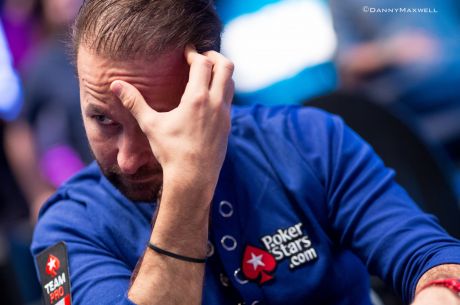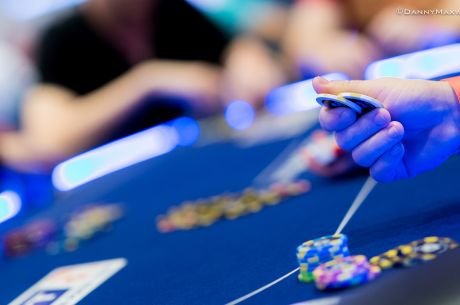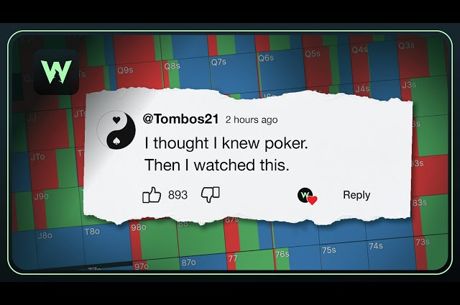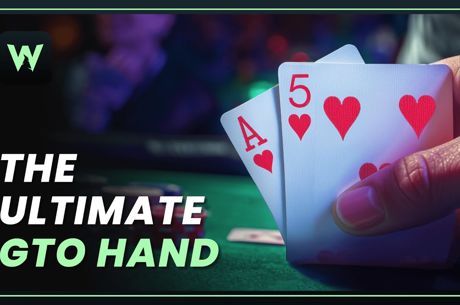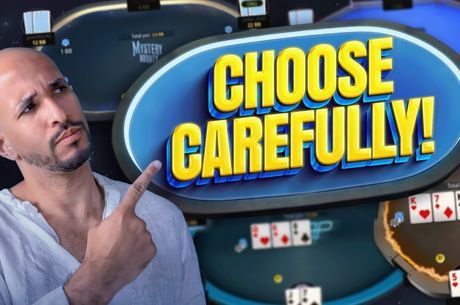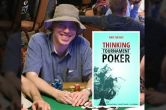Knowing When Your Opponent Might Be Playing “Any Two”
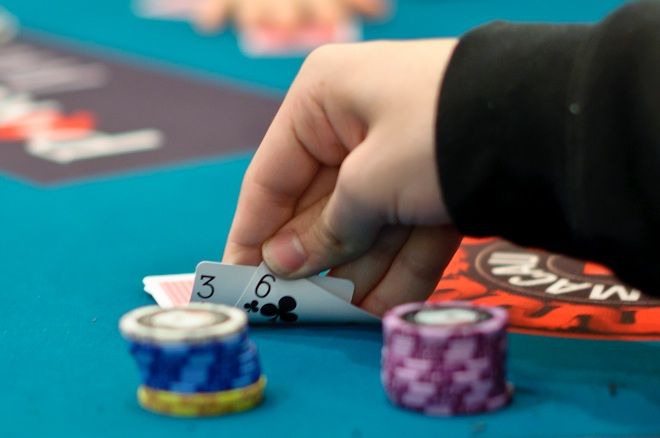
As I discussed last week, the arithmetic of “any two” situations suggests that even slight suspicions that your opponent is on any two cards can and should lead you to fight back liberally. This is especially true those times when your opponents might not suspect that you put them on a very wide range or when it would be very expensive for them to find out whether you are on a move.
This in turn suggests that it’s worth your while to improve your ability to learn your opponents’ “any two” propensities. Even if you don’t sniff many of these situations out, they are so valuable as to make the relevant skills worth developing.
How do you go about discovering when an opponent is likely to play any two cards? As usual, the answer is to look at situations from your opponent’s perspective. Once you understand the causes of the “go for it” mentality, you will only need to find the situations in which these causes are likely to be operative.
Here are two common situations in which you should be particularly alert:
1. Easy blinds and observant blind stealers
Sometimes players will drastically widening their ranges for reasons particular to them, but at other times even cold logic will suggest a blind raise. Here, the most common situation is when the blinds are so tight as to increase drastically the chances that an open-raise will win the pot immediately. (If you take it down with one raise, it doesn’t matter what your cards are!)
This happens most often in tournaments, when there are usually antes sweetening the preflop pot, and when players are more often risk-averse (for good reasons or for bad reasons). A hallmark of strong tournament play is finding and exploiting these situations (don’t you?). If you have reason to believe that your opponents are observant and bold enough to seize these opportunities, go ahead and fight back.
2. The “tilty entitled”
There are many examples of emotion causing bad play. Indeed, any feeling of immoderate intensity, even a positive one, can get in the way of one’s best poker.
The attitude of entitlement, however, is notable for the impatience it causes and for the way it can blind a player to a particular situation. Anger and regret are powerful fuel for mistakes, but the feeling that one deserves the money is, I think, more likely to make someone forget what his cards are — or not to care in the first place.
Think about a poker player of your acquaintance who is prone to feelings of entitlement, and imagine that he has just lost a big pot to a player he believes to play poorly. Now imagine that he is on the button in a steal situation, or that he has seen a free flop in the big blind and has only two opponents, you and a limper who looks completely uninterested in the pot. Is this player really going to let this chance pass by without trying to win back some of what he feels is rightfully his?
I’ve known many players who will take the aggressive action 100% of the time in these situations, just as surely as they would pick up a hundred-dollar chip that had fallen to the floor from their stack.
Conclusion
Taking pots away from aggressors in these situations is a good long-term source of profit. Remember, though, that misdiagnoses can be costly. Your best opponents will never leave themselves too unbalanced, and thinking that they are unbalanced when they aren’t will lead you to make big mistakes.
Moreover, sometimes there’s no way to take advantage of the situation even if you recognize it correctly. If the remaining stacks are short enough, if the relevant opponent is tilted enough, or if there are too many other players who could foul things up, you will need to abandon your restealing plans.
Good luck, and happy hunting seeking out spots where your opponents might well be playing “any two.”
Thinking Tournament Poker by Nate Meyvis is now available both at Amazon and at nitcast.com. Be sure also to check out Nate and Andrew Brokos on the Thinking Poker podcast, and for more from Nate visit his blog at natemeyvis.com.
Want to stay atop all the latest in the poker world? If so, make sure to get PokerNews updates on your social media outlets. Follow us on Twitter and find us on both Facebook and Google+!


